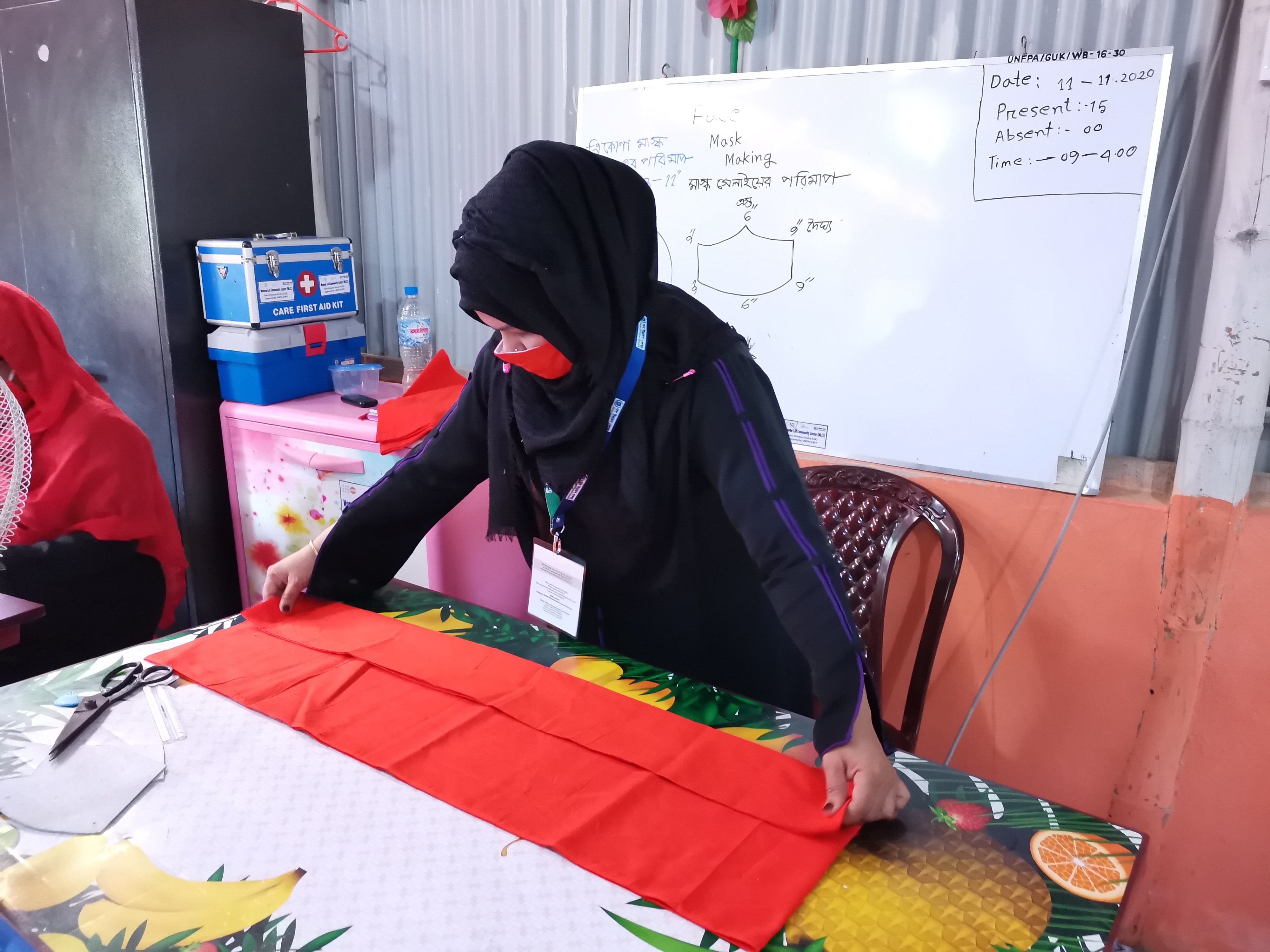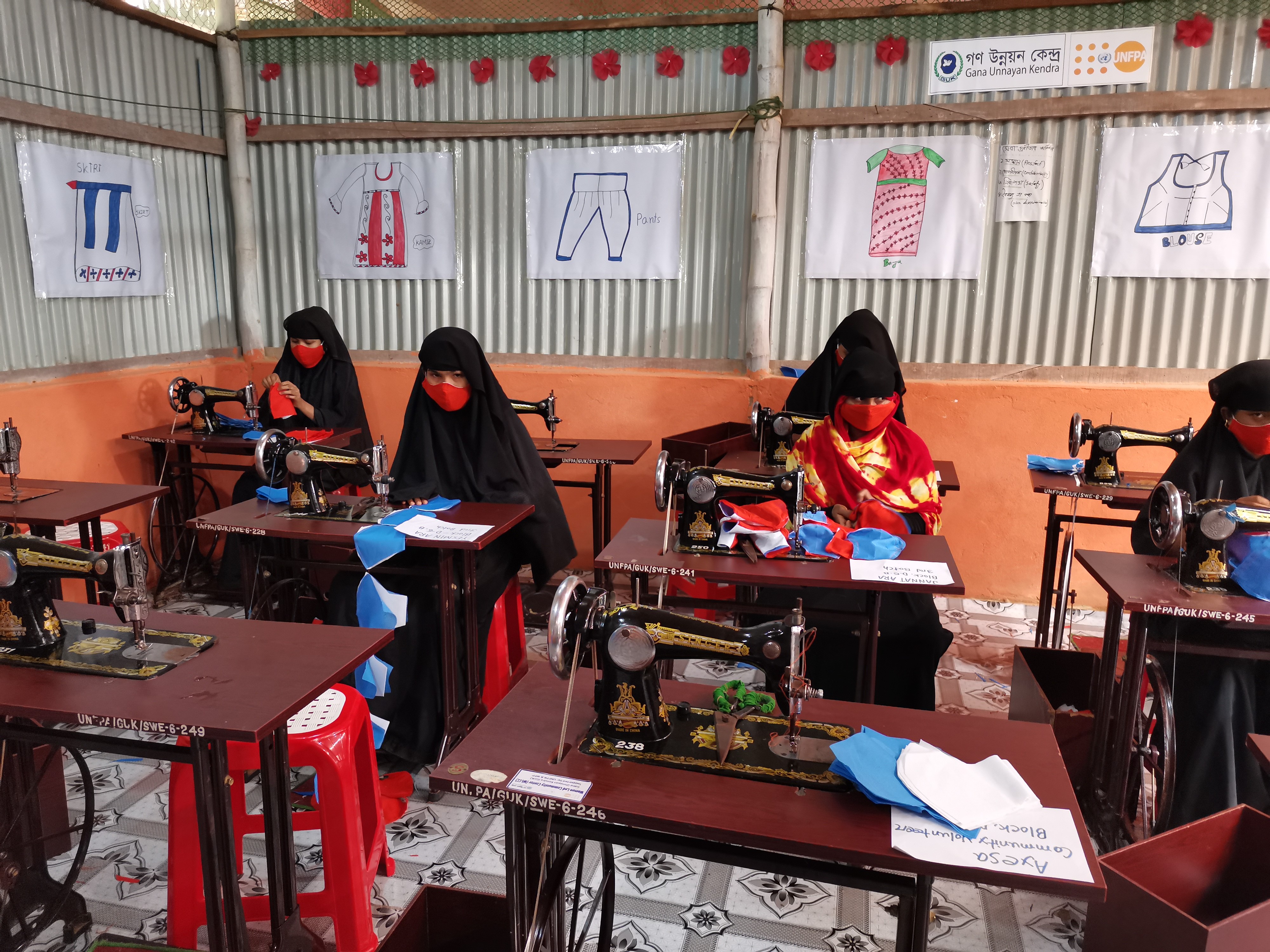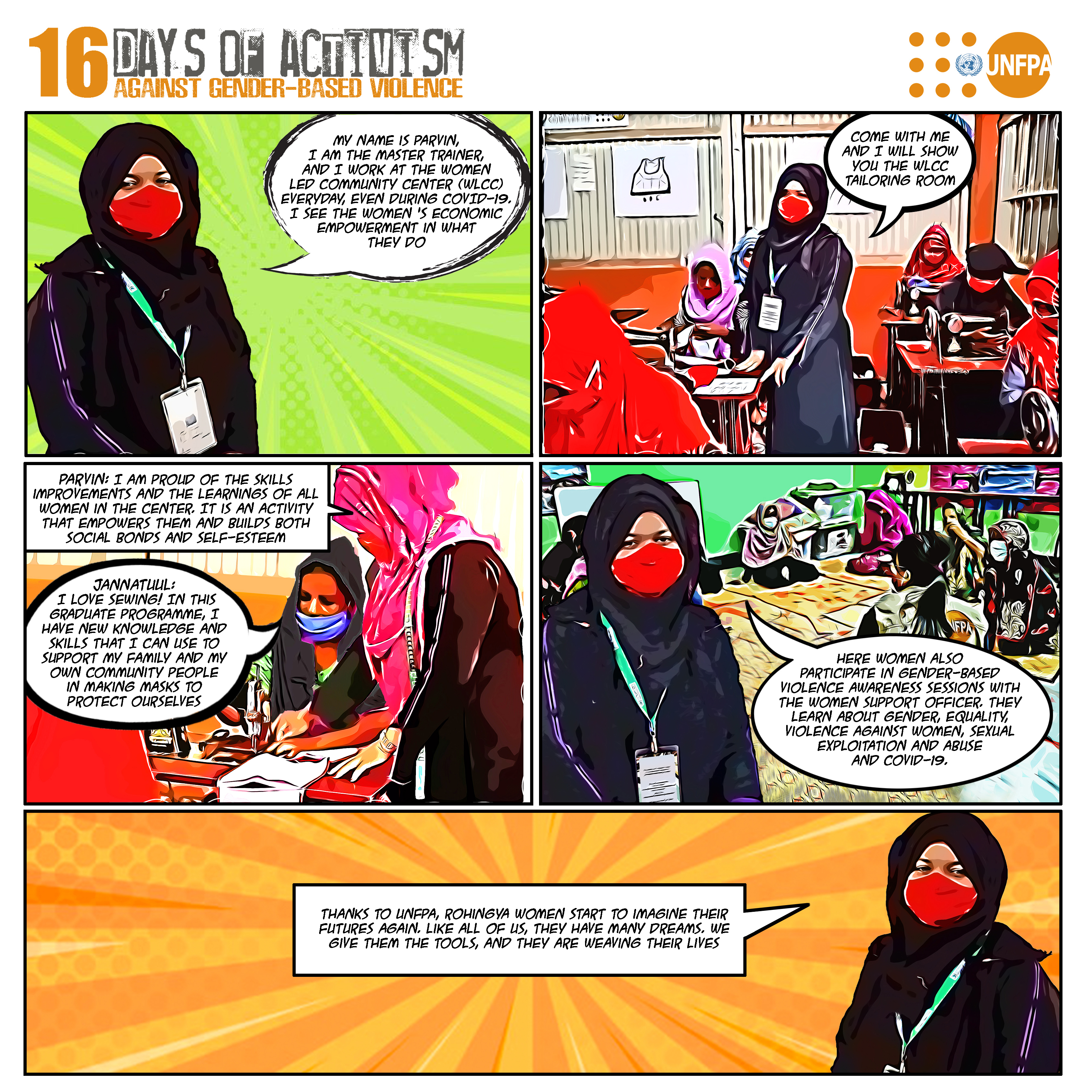
Despite the ongoing COVID-19 pandemic, resilient, strong and courageous Rohingya women in the camps of Cox’s Bazar have not lost hope for a better future.
In September 2020, after the UNFPA-supported Women-Led Community Centers (WLCC) reopened for the first time since the beginning of the pandemic, 150 women from the camps were immediately enrolled in skills training programmes provided by the centres. The trainings aim to economically empower women by giving them the opportunity to earn an income amidst the uncertainties posed by COVID-19 and by teaching them skills that enhance their prospects in the camps.
“Coming to the Women-Led Community Centers gives women a sense of purpose, of re-found joy”, says Ms. Parvin, a master trainer at the centre, emphasizing the positive psychological impact the training programmes have on women, in addition to their skills development.
Ms Parvin is currently supervising a group of fifteen young Rohingya women who are learning to sew cloth masks. With their meticulous weaving, the young women fearlessly combat the pandemic by protecting their community. Ms. Parvin claims that engaging in this meaningful work has a tremendous effect on their self-esteem, which is often low as a result of the traumatic experiences many of the women have gone through.
“I am working so that I can start dreaming again”, states Jannatuul, a 20-year-old single mother enrolled in the mask sewing programme. Jannatuul was born in the Rohingya camps after her parents fled from Myanmar in the early 1990s. While her life has been difficult, her passion for sewing has given her a sense of optimism for the future.
“With the money I am currently receiving, I can fulfil the needs of my child and take care of my personal well-being. I am thinking of buying myself a sewing machine. I am so fast and good at it!” she says, her eyes gleaming with excitement.

According to Ms. Parvin, Janatuul is not the only one of the young women with excellent progress in learning the art of tailoring. “The daily target for each of the girls is twenty-five new masks, but they always do more than requested! It is impressive to see their enthusiasm, energy and hard-work. I see in them a true willingness to learn,” she says.
For an extra boost of motivation, Ms. Parvin has hung drawings of different clothing types on the walls of the Women-Led Community Centers. “It is just a reminder to the girls that if they keep practising, they will be able to sew baby clothing, blouses, pants, shirts, long skirts… anything they want! I am a believer in the proverb “practice makes perfect” and to become a professional tailor, practice is key,” she explains.
In between the tailoring, the women also have the chance to participate in awareness-raising sessions held at the Women-Led Community Centers. The sessions provide an opportunity for the women to discuss and learn about issues such as violence against women, sexual exploitation and abuse, and gender equality, which are often taboo among the Rohingya community. Engaging in these intimate conversations builds trust between the women and allows them to process their painful experiences in a safe, confidential and non-judgmental environment.
Through the mask tailoring and their network of sisterhood, UNFPA is happy to provide a safe space for these women to come together and weave a brighter future for themselves.



